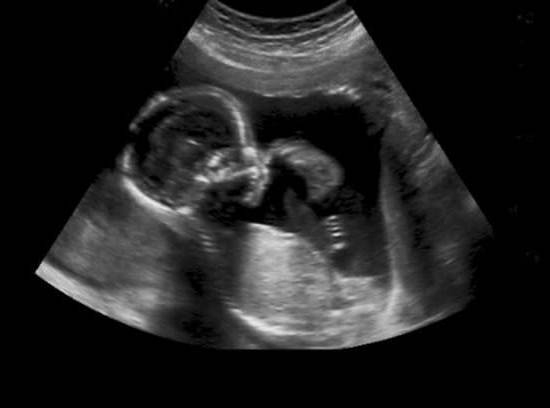Introduction
It is important to be aware of the safety of taking any medication during pregnancy, and this includes nasal sprays. This blog post will cover the risks and benefits of using nasal sprays while pregnant, as well as discuss safe alternatives that have been approved by doctors for pregnant women. We will review a variety of types of nasal sprays and their active ingredients so you can make an informed decision about what is right for you.
What are nasal sprays?
Nasal sprays are medications used to treat symptoms of nasal allergies and inflammation, such as congestion, sneezing, and irritation. They come as either corticosteroid sprays or saline (salt water) solutions. Corticosteroid nasal sprays can be effective for reducing allergy symptoms in some people because they have anti-inflammatory effects. The salt water solution helps to rinse away dust, pollen, and other allergens from the sinuses, while also providing moisture and lubrication.
When using a nasal spray it is important to use the correct technique. Before spraying, release one nostril at a time by pressing with a finger against the side of the nose and gently blowing air out through that nostril until there is a clear “pop” sound like when opening a bottle. Tilting your head slightly during this process can help clear the path for the spray. When spraying into each nostril use quick gentle bursts that reach all the way back into the nose without going too deep – this will help ensure even coverage throughout both sides of your nose. Remember to shake the bottle well before using and always wash your hands before and after using it!
In regards to safety during pregnancy; generally speaking, most forms of corticosteroid nasal sprays are safe to use occasionally but should not be used for prolonged periods of time as prolonged use may cause preterm labor. As for saline solutions; these are considered very safe for pregnant women and can be used more regularly over an extended period of time without any negative effects on fetal development. As always you should consult with your doctor before taking or continuing any medication during pregnancy!
Potential Risks of Using Nasal Sprays During Pregnancy
Using certain forms of nasal spray while pregnant can be considered possibly unsafe and should generally be avoided if possible. Decongestant nasal sprays that contain phenylephrine are a known risk for women during the first trimester, as the chemical can cross the placenta, leading to potential complications for the baby. Other ingredients in some nasal sprays like alcohol and benzalkonium chloride can be toxic if absorbed into the bloodstream. Additionally, if a pregnant woman uses medicines containing clenbuterol or xylometazoline, it could cause low birth weight and other issues for her infant.
It’s also important to make sure you discuss any prescription or over-the-counter medications you may take with your doctor before using them during pregnancy. Some medicines could interact dangerously with others and have adverse effects on fetal development. Furthermore, discussing any potential allergies you have when taking new medication is essential; this is important whether the medication is used directly by you or administered indirectly via a nasal spray.
Alternatives to Nasal Sprays During Pregnancy
When pregnant, it is important to exercise regularly to help reduce nasal congestion. Swimming and water aerobics can be beneficial for the expectant mother, as these activities usually involve gentle movements that promote an overall sense of well-being. Additionally, it is important to drink plenty of fluids to prevent dehydration which may contribute towards your congestion.
In addition to exercise, keep the air around you moist by using a humidifier in rooms where you sleep or spend long periods of time. Maintaining a good level of humidity will make breathing easier as this thins out the mucus in your nose and allows easier drainage.
One way you can use sinus-clearing foods and herbs while pregnant is through incorporating them into your daily diet. Foods such as citrus fruits (e.g., lemons and oranges) contain a flavonoid called hesperidin that helps reduce inflammation of the nasal passages caused by congestion. Garlic, onions, chilies, and horseradish are also known for possessing decongestant properties and are recommended as part of a healthy diet when sinuses are congested during pregnancy.
You also might consider trying aromatherapy with essential oils that act to loosen up mucus in the upper respiratory system during pregnancy; some examples include eucalyptus, peppermint, and rosemary essential oils which are effective decongestants due to their natural anti-inflammatory and anti-bacterial properties. These can be used in oil diffusers or in handkerchiefs directly under nostrils for increased relief from nausea due to sinus infection.
Benefits of Using Nasal Sprays During Pregnancy
Nasal sprays can be used safely during pregnancy when prescribed or recommended by a doctor. Saline or moisturizing nasal sprays are the most common type used to relieve symptoms of congestion, allergies and sinus pressure can all lead to difficulty in breathing. Depending on the severity of these conditions and symptoms, your doctor may recommend a more specific type of medication for relief. When using any kind of medication, it is important that you follow the doctor’s instruction carefully.
Certain types of nasal sprays contain decongestants and antihistamines, so it is important to be aware that these substances could potentially cause harm to your developing baby if taken in large doses or for longer than prescribed. If it is deemed necessary for you to use a decongestant or an antihistamine as part of your treatment, talk to your doctor about which one is safest and make sure not to exceed their instructions.
Using a saline nasal spray while pregnant can have major benefits including clearer breathing and reduced irritation or infection. This type of spray contains salt water which helps wash away debris from nose and sinuses while moisturizing the surrounding tissues, promoting healing and providing relief from congestion. It also helps remove mucus so the body has less work to do when fighting off infections or bacteria. These types of sprays come in several forms such as saltwater gels, mists and liquid solutions that you can apply manually with a device like a neti pot.
Important Considerations Before Using Nasal Sprays During Pregnancy
Nasal sprays can be safe during pregnancy; however, it is important that a doctor is consulted before using them. Many nasal sprays contain active ingredients which can interact with certain medications and illnesses, so it is essential for pregnant women to be aware of any potential contraindications before taking any type of medication. It is also important to understand the recommended dosage for the nasal spray in question as well as any open-ended directions or limitations that may apply. Lastly, monitoring for any unusual side effects associated with use of the nasal spray should always come into play when determining safety during pregnancy. This includes looking out for possible symptoms such as headaches, dizziness, or blurred vision and alerting a doctor if anything appears abnormal or out of the ordinary. With these necessary precautions and considerations taken into account, nasal sprays can often be safe to use while pregnant.
Conclusion
Nasal sprays can be a useful treatment for nasal congestion during pregnancy. However, it is important to understand the potential risks and benefits before using any medication or supplement during pregnancy. Depending on the type of nasal spray and its active ingredients, some products may not be considered safe for use during pregnancy. Therefore, it is recommended that pregnant women consult with their healthcare provider prior to taking any over-the-counter or prescription medications. Pregnant women may also choose to discuss other treatments for allergies such as saline nose drops and neti pots instead of a nasal spray. In addition, avoiding environmental allergens like dust and pollen, drinking plenty of fluids, and practicing good hygiene can help reduce symptoms associated with allergies and ensure mother and baby’s safety when pregnant.

Welcome to my fertility blog. This is a space where I will be sharing my experiences as I navigate through the world of fertility treatments, as well as provide information and resources about fertility and pregnancy.





